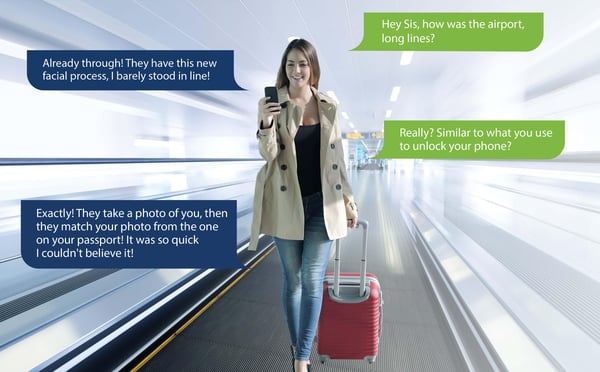The airport at the heart of Silicon Valley, San Jose International, is going all in on facial recognition for passengers traveling to or coming from international destinations
And facial biometrics supporters couldn't wait to praise the decision.
Reaction to San Jose expanding facial recognition
San Jose Mayor Sam Liccardo calls this a great example of leveraging technology.
“The use of biometrics technology will help cut down wait times and enhance the overall experience for our international travelers, especially as we continue to see unprecedented growth at SJC."
And U.S. Customs and Border Protection Commissioner Kevin McAleenan said it really should be no surprise San Jose International is on the leading edge.
"As one of the nation’s main regions of innovation, Silicon Valley is at the forefront of transforming the travel experience through biometrics."
Customs and Border Protection also touted how facial recognition will speed up international exits and entries with technology akin to facial recognition on some mobile devices. Just look at this "happy traveler."

It sure sounds convenient, but what about the privacy and security around facial recognition biometrics?
Facial biometrics: what about security and privacy?
SecureWorld recently wrote about Amazon's Facial Recognition Service vs. the ACLU. And NPR published a really interesting read that covers all sides of the airport biometrics debate.
"DHS hasn't issued a single rule under this program to protect Americans' privacy. So what do you just decide to do with this information tomorrow? I'm not sure. And without rules, there may be few protections for Americans' privacy," according to Harrison Rudolph of the Center on Privacy and Technology at Georgetown University Law School.
The Department of Homeland Security knows there are critics and says it has met with those who are concerned. It claims to delete traveler photos within 14 days, and in a recent Privacy Impact Statement also touts the system's security:
"As boarding begins, each traveler approaches the departure gate to present a boarding pass and stand for a photo in front of a CBP-owned camera, each of which will be connected... via a secure, encrypted connection. Once the camera captures a usable image, it will submit the image to CBP’s cloud-based backend facial matching service via an HTTPS/SSL-encrypted connection."
As the debate over the government's facial biometrics program continues, so will its implementation across the U.S.
And by fall 2018, you'll apparently get in and out of Silicon Valley's airport faster—unless the database doesn't recognize you.
In that case, you'll have the chance to spend some quality time with someone from U.S. Customs and Border Patrol.




